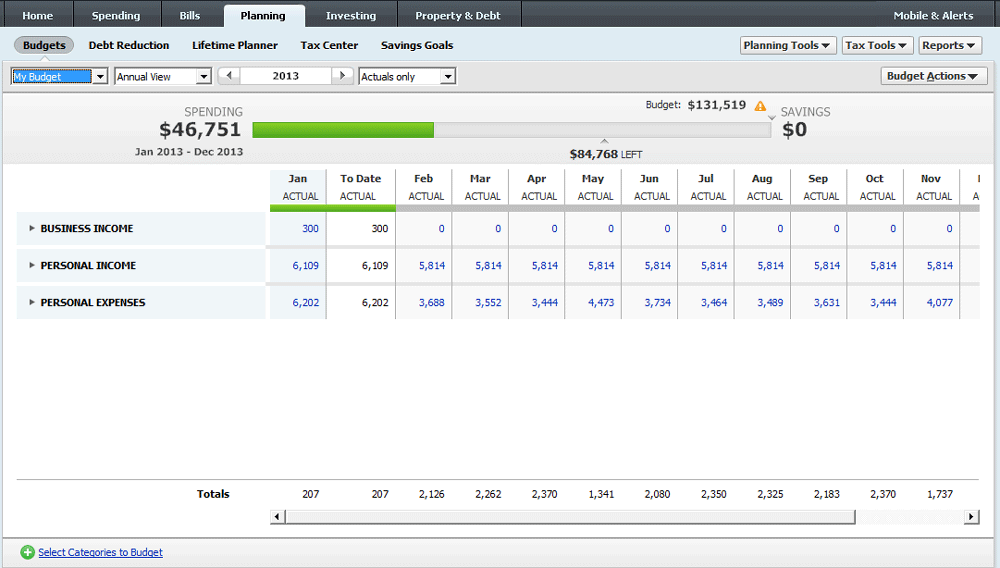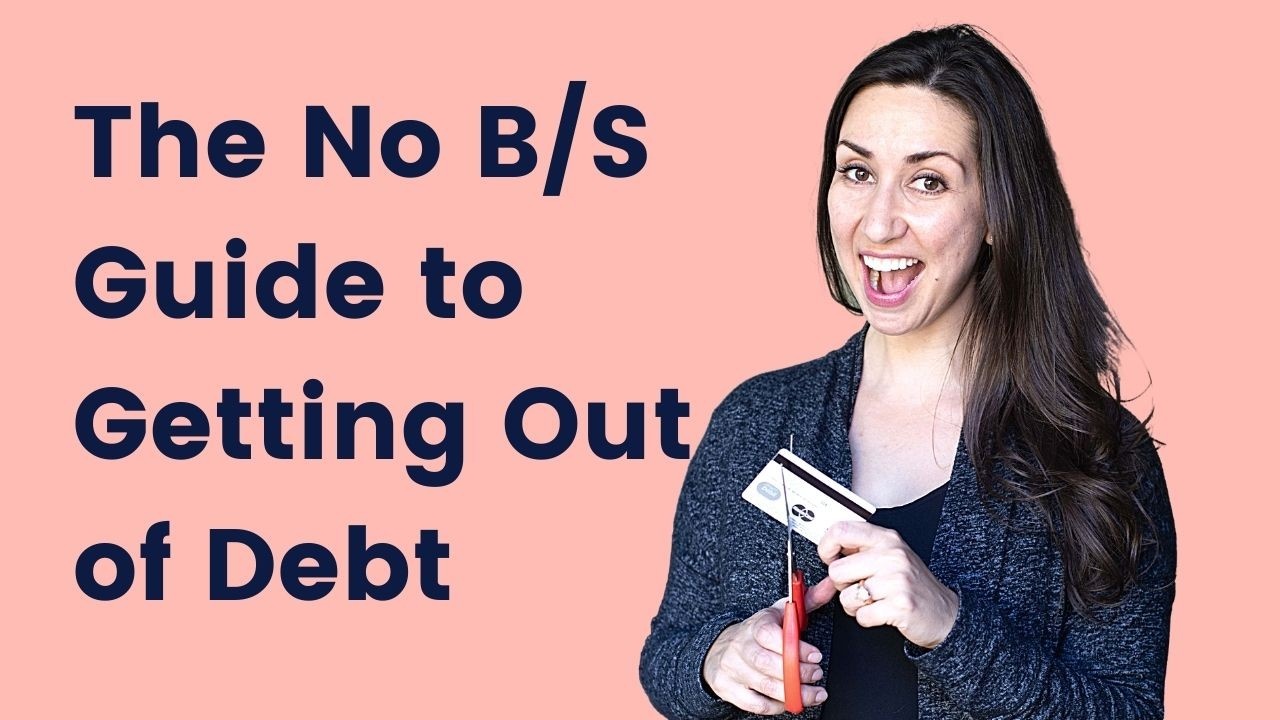
How to Make a Budget When Expenses and Income are Unknown
How the heck do you even begin to wrap your arms around a budget when there are so many things that you just can't answer? It can seem impossible. But you can do it if you start with a rough draft or, what I like to call "dropping a pin"
FYI, this is an excerpt from my free monthly webinar, Wealthy Wednesdays. You can sign-up for the next webinar here.
Table of Contents
- YouTube Video
- Drop a Pin
- Expenses: Over estimate how much an expense will be.
- Income: Under estimate how much your income will change.
- Use short-term savings to pay for upcoming, non-monthly expenses.
- Put these expenses and income into an annual budget or spending plan.
- Be wary of deprivation
How to Budget When Life is Uncertain (YouTube)
Many people don't want to plan their expenses. They would rather pull the covers over their head and just look the other way. Unfortunately, whether you ignore it or not, these expenses are inevitably going to take place. If you ignore them, they will end up costing you more. But, if you can get out in front of them to the best of your ability, and at least put some structure in place, as the situation changes one way or the other, you're not trying to start from scratch. You just need to adjust.
It seems like lately we don't even know if we can even go out to dinner, let alone if we're going to be able to take a trip or if the kids are going to be able to go to summer camp.
But, like I tell all of my clients: "You've got to start somewhere!"
So how do you begin plan for upcoming expenses when you really don't know what's the future is going to be like?
I want to talk through how to begin to put some structure around your spending. I also want to explain how to plan for the income that may be uncertain for many people as well.
First off, I have this conversation conversation over and over with people. In my own life, my fiancé and I were planning our wedding for 2020. And at some point we just needed to cancel it because of the pandemic.
And so I only share that with you to let you know that this is work that I am actively doing that Ed and I basically sit down every week during our money date, and we try to figure out.
My clients say,
- "I just don't know what to expect."
- "I can't plan for it."
- "It's too unknown."
This is a thought pattern we can get stuck in and never move out of. However, if you take a step back, you will discover that you often know more about and upcoming expense than you think.
Drop a Pin
The first step is to "Drop a pin".
You know you have an expense coming up. You're trying to get something accomplished, whatever that may be, whether that's a home purchase, a new job, a summer vacation, a car that you need to purchase, etc.
You need to drop a pin. Put a number to the expense even if you know it's not accurate.
- A vacation? $2,000
- A new car? $8,000
- Summer camp for your kids? $500
Then, start to zero in on the number by answering these questions:
- When would this expense happen?
- When would I like it to happen?
- How much might this cost?
- If I had to make my best guess or my best educated guess what would I guess this will cost?
Then, as life unfolds, you start to be able to answer more and more questions when you get more information.
You may get more information from your employer about raises or bonuses.
You may get an update from the kids school on what summer camp might look like.
As you get these little bits of information, you can then move the estimated expense (the "pin" you dropped) around.
Expenses: Over estimate how much an expense will be.
I recommend being more aggressive on your spending estimates.
If you think something might happen, you want to plug it into your budgeting tool or spreadsheet every month.
Then you can consider how it might affect your plan. You might say "Okay, if this did happen, what would a more aggressive more than average estimate be for it?" You don't want to lowball yourself. You want to go on the higher side of your estimated expense.
That way, if the actual cost of it comes in under your estimate, it's like icing on the cake!
Income: Under estimate how much your income will change.
On the other side of the coin, you want to be more conservative about how much your income will increase. If you think you're going to get a raise or bonus, under-estimate it and make your plan work using those numbers. That way if you get a little extra or more, your plan will work that much easier!
Use short-term savings to pay for upcoming, non-monthly expenses.
You may also wonder how do you pay for these expenses that are coming up in the future. The goal is to use short-term savings to pay for upcoming expenses that are not monthly. This is one of the steps to financial freedom I teach.
Short-term savings is like a little bucket of money on the side to help cover these things that come up from time to time, so you're not using credit cards. The victory in having this money put aside is not that you saved it, it's that you spend it (and don't use credit cards instead)
Put these expenses and income into an annual budget or spending plan.
You might be wondering where this information should actually go. Well, I train my clients to use budgeting software from QuickenTM or MoneyGrit.TM both of which have annual plans built into the budgeting software.
These "uncertain" expenses should go into your annual plan. These are expenses that may happen 3 or 4 months in the future.
The first step in planning for your expenses is to build the habit of a monthly spending plan. Once you've practiced handling your money month in and month out, you can build your annual plan.
|
MoneyGrit.TM allows you switch between monthly and annual spending plans from the same screen. |
QuickenTM creates an annual view in the Planning/Budgeting section. |
As you start to map out all your expenses for the year, even if it's out on the horizon, you may not know until two or three more months down the line how much it will actually be.
But if you've dropped that pin in you will be much more prepared to adjust when the time comes! When you truly understand total annual cost of living, you can make much more empowered choices and get more visibility.
Be wary of deprivation
Now when you're dropping a pin for your expenses and income, you don't want to throw yourself into a state of deprivation. You don't want to cut back so much on your needs and wants for all of the upcoming expense that it feels like you're starving yourself out.
I'm all about balance! You want to look at your budget and say "How can I dial things back in an intentional way?"
This is an excerpt from my free monthly webinar, Wealthy Wednesdays. You can sign-up for the next webinar here.
Did you like this article? Get the latest personal finance articles from Vibrant Money by subscribing to our weekly newsletter!
Enter your email address below to sign-up.
We will never sell your information, for any reason.











